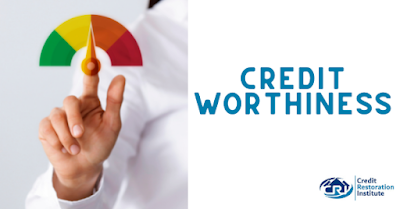The Credit Restoration Institute World Famous Weblog: March Newsletter 2022
In honor of National Credit Education Month, we’re going to share some basic credit information that we think everyone should know. We believe that understanding credit is the first step in achieving a healthy credit score.
What is Credit?
Starting with the most basic, credit is the ability to borrow money or access goods or services with the understanding that you’ll pay later.
Creditors, lenders, merchants and service providers, grant credit based on their confidence you can be trusted to pay back what you borrow — or, your creditworthiness. Your creditworthiness is summed up in a 3-digit number known as a credit score.
The 3 Major Consumer Reporting Agencies
Equifax, Experiean, and TransUnionEach one will have a slightly different score, but they all use the same information found in your credit report.
Your credit report is based on several factors including:
- The number of credit card accounts you have and the borrowing limits and current balances.
- The amounts of any loans you’ve taken out and how much of them you’ve paid back.
- Monthly payments on your accounts and whether they were made on time, late or missed.
- Severe financial setbacks, if any, including mortgage foreclosures, car repossessions and bankruptcies.
Credit Scores
There are different models that provide you with a credit score, such as a FICO Score and a VantageScore. They calculate your scores differently but both associate those with better credit history with a higher score, and assign a lower score to those with lower creditworthiness.Both of these models take into account the four types of credit: Revolving credit, charge cards, service credit, and last but not least, installment credit.
Types of Credit
Revolving credit: your typical credit card, like Capital One, Chase, or DiscoverCharge cards: similar to revolving credit, however you have to pay the full balance every month. Think of your typical store credit card, like Target or Old NavyService credit: services you are provided every month with the understanding you will pay for it after the fact. For example, your cable or electric bill, or even your gym membership.Installment credit: student, auto, or home loans. You borrow X amount of dollars, and in a payment plan, you pay back X + any interest and fees.
Things You Can Do Today
- Pull your free credit report. Please note, this report will not include your credit score. You can use a service like annuacreditreport.com
- Check out your credit score. There are several ways to pull a free score, you can check with your bank, credit union, or credit card company. Be careful of any services that require your credit card or debit information. Free credit score checks should be free.
Our custom credit disputes leverage the consumer protection laws and the credit bureaus’ automated codes to help remove or correct any unverifiable items.
As a client, we dispute accounts with the bureaus and creditors on your behalf. Using our years of experience, we utilize the tools you need to move your case forward and the results you are looking for.
Did you know? Creditworthiness is the extent to which a person is considered suitable to receive financial credit, often based on their reliability in paying money back in the past. Creditworthiness has a huge effect on one’s mental health. For many, having access to basic human needs relies heavily on your credit score. Often, those with poor or bad credit end up in a cycle of debt resulting in higher levels of anxiety, depression, and hopelessness.


